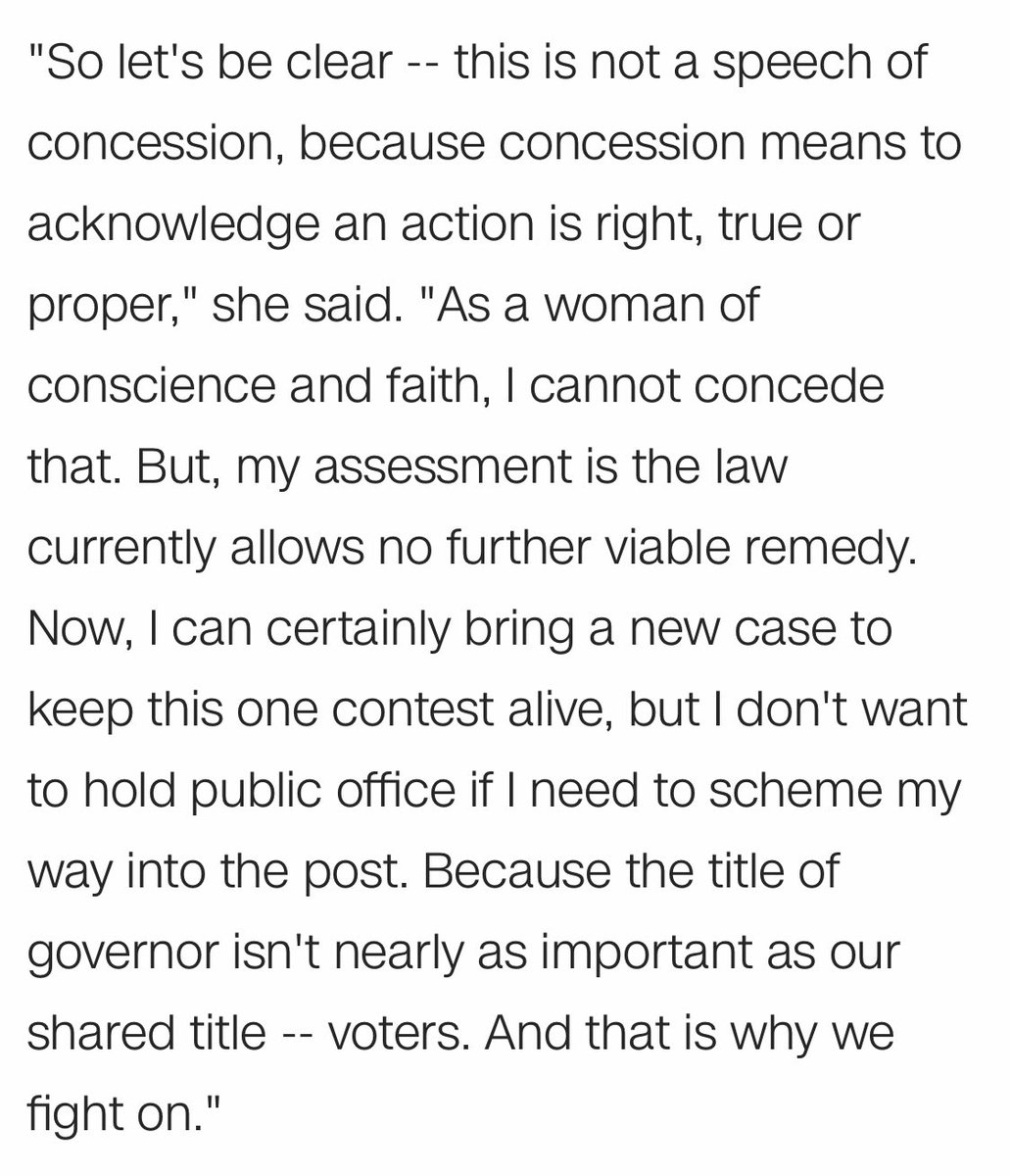
Maybe it’s time to talk about what happened in Georgia in 2018 and why it is completely different than what is happening now, since this seems to be making the rounds of conservative talking points. since she was a Black woman no one actually paid attention to her complaints.
https://twitter.com/marcushusa/status/1326503306223554565
First off Brian Kemp, who was running against Abrams, was Secretary of State at the time and he purged 340,000 voters from the state’s voter registration, disproportionally targeting Black voters. theguardian.com/us-news/2018/o…
Kemp also put over 53,000 voter registrations on hold due to extremely minor discrepancies, again targeting Black voters. vox.com/policy-and-pol…
Kemp was also caught admitting to donors that he was concerned about more Georgia residents using their right to vote, saying he was concerned “especially if everybody uses and exercises their right to vote.” rollingstone.com/politics/polit…
On Election Day 2018 in Georgia there were all kinds of problems, again predominantly effecting Black voters. Machines were broken, other machines were kept in storage, and Black communities disproportionately faced lines lasting hours in order to vote. apnews.com/article/a2b641…
Abrams did ultimately end her campaign and state that Kemp won on November 17. She refused to refer to her speech as a concession speech, stating: 

Abrams did not sulk, or complain on Twitter. She got to work and built one of the largest get out the vote organizations in the US, and helped flip a state Trump won by 5% to Biden.
None of that happened this time around. There were no major irregularities in Georgia or any state, and there were also next to no reports of massive lines to vote anywhere this year. These are simply not comparable.
Republicans who insist they are are doing a disservice to reality and to their own party.
• • •
Missing some Tweet in this thread? You can try to
force a refresh


